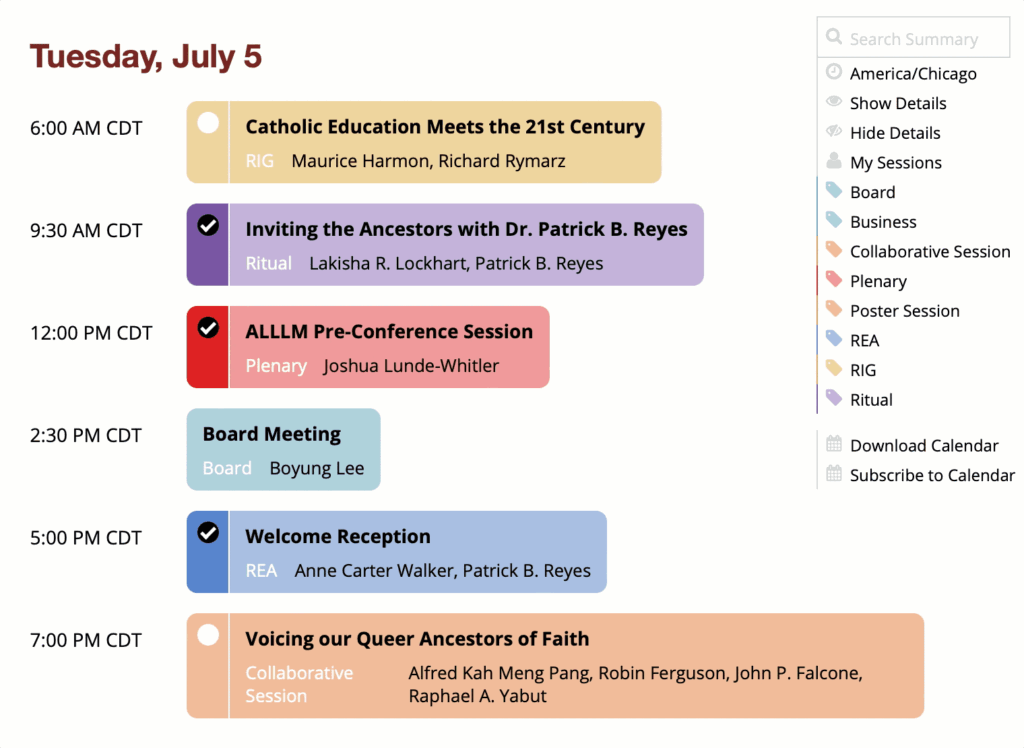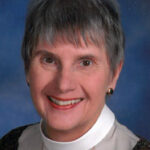When I was eleven my father died suddenly of a heart attack; within a week my mother moved my 14-year-old sister and me from Des Moines to Mason City, Iowa. There a pastor and a welcoming congregation brought us to Church, Sunday School, confirmation classes, and often to someone’s home for Sunday dinner. We didn’t have a car. A grieving little girl was embraced with the Good News of a Living Christ and a Christian community. No wonder that at the passionate center of religious education for me through the years has been ecclesiology.
Strong public education provided me opportunities to develop my gifts. Upon graduation from a local Community College, with excellent courses in teaching, I received a 2-year AA teaching degree. Mentor Marie Schalekamp, taught that education is a circle; nothing we learn is really ours until we teach it.
With congregational financial support, I attended Valparaiso University, graduated with a theology major and an education minor, and was consecrated a Lutheran deaconess. While in St. Louis, serving as a parish deaconess, Concordia Seminary (before the schism and exile) opened its doors to parochial school teachers. I, too, walked in. There we were, two women among hundreds of men. Dietrich Bonhoeffer and Paulo Freire shaped me intellectually.
Theological education took place also on the streets of Detroit during my community organizing days with husband Burton and our 3 little boys. The revolution–called riots–of 1967-8 drove my passion for justice and for equal access to public education for children in all neighborhoods and in all countries. Gethsemane Lutheran, where Burton served as pastor, had a Lutheran school where we could reach out to all races and economic backgrounds. We taught one another.
We continued inner city ministry in New Haven, CT. Again I was engaged in community organizing. I also enrolled at Yale Divinity School. I lived in two worlds. I walked the streets; our children attended condemned public schools. Hence I, with little music background, started a boys’ choir; I took to them to sing at Yale chapel one day, few miles and worlds apart. As a religious educator I have a sustaining passion to learn from one another across all kinds of cultural and economic boundaries.
At Yale, Letty Russell mentored me and so many others. Her early 1967 book, Christian Education in Mission, her inner city work, and feminist theology resonated with my life and ministry. She encouraged me to seek ordination to Word and Sacrament ministry, the first Lutheran deaconess to do so. Renouncing a hierarchical view of ministry, I also have remained in my deaconess community. Upon graduation I was invited by Gaylord Noyce, to teach with him at Yale Divinity School in the area of parish ministry, focusing on Christian Education. Then, at the invitation of Barney Kathan and Robert Conrad, I began the wonderful relationship with REA and APRRE, providing a learning community of scholars for a lifetime. Thomas Groome, Maria Harris, Gabriel Moran, Chuck Foster, Mary Elizabeth Moore–how can I name them all?—continue to influence me.
After those wonderful years of teaching at Yale, I was called to Wartburg Seminary, the first woman in a tenured position at a seminary of the American Lutheran Church, where I have been a professor since 1979. Key continuous central passions are doing theology inductively, action/reflection, a theology of methodology, and issues of American Civil Religion and Church and State. Among my own books, The Church as Learning Community has connected me to younger scholars in the field. That book and APPRE took me to visit Elizabeth Nolan in Australia and Rune Larsson in Sweden. The professors of educational ministry at the Lutheran (ELCA) Seminaries in the U.S and Canada (ELCIC) wrote five books together, often inspired by the commitment of APRRE and REA to the academy and to the Church.
My passions through the years have not changed, but rather deepened and grown. My Ph.D. thesis was on “The Paradox of Pluralism” and the Church’s vocation in the public world. Through religious education we are called to create trustworthy environments to be different together in the classroom and globally. How we teach teaches as powerfully as what we teach. By walking through doors newly—slightly—open, and opening them wider, we have changed theological education: collaborative learning, shared power, liberating partnerships, mutual accountability. Centered in the Living Christ in a life-giving community, I feel called to vocation in a public, religiously plural world. The need is great to create all sorts of learning communities.

